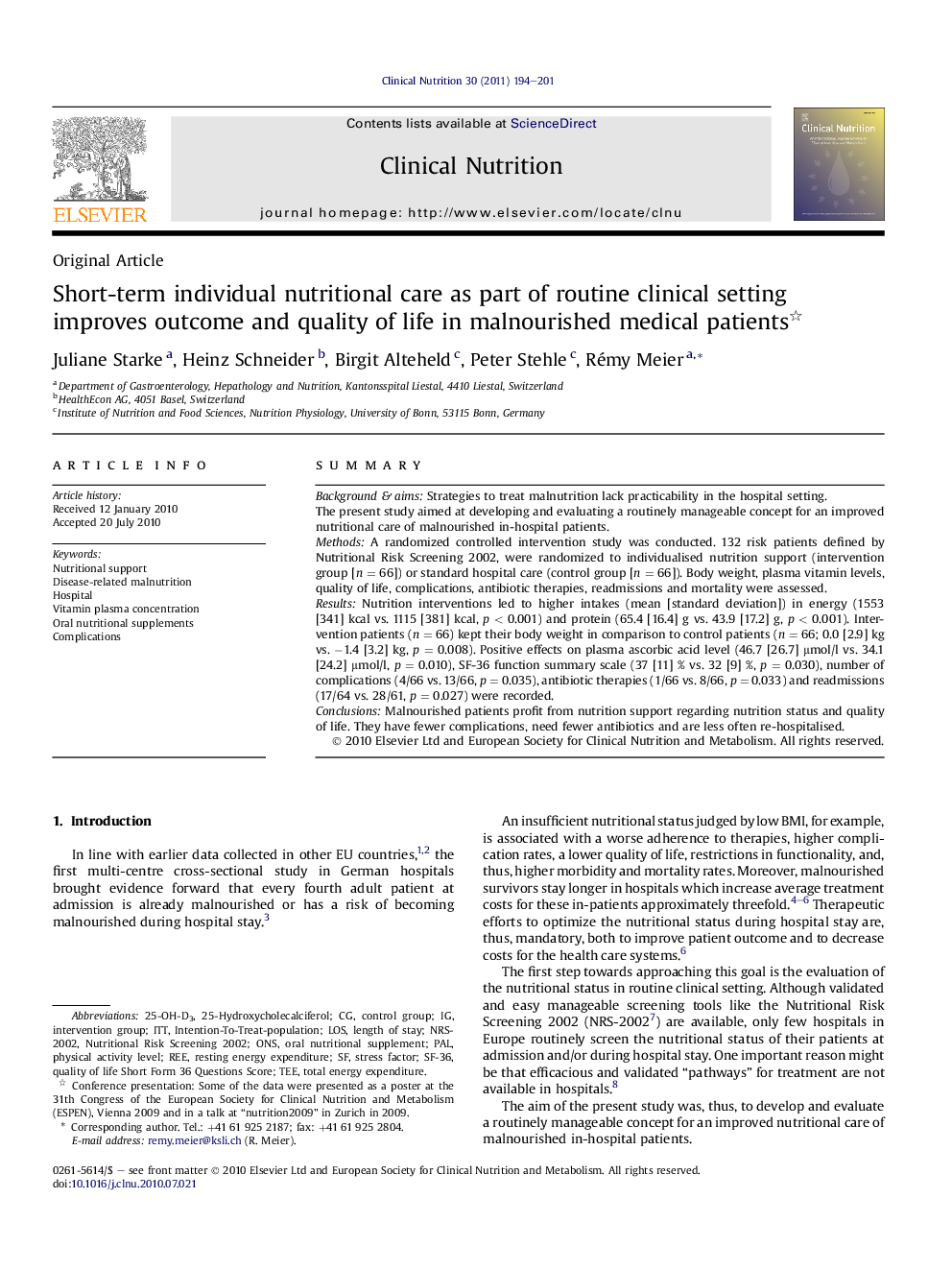| Article ID | Journal | Published Year | Pages | File Type |
|---|---|---|---|---|
| 2684130 | Clinical Nutrition | 2011 | 8 Pages |
SummaryBackground & aimsStrategies to treat malnutrition lack practicability in the hospital setting.The present study aimed at developing and evaluating a routinely manageable concept for an improved nutritional care of malnourished in-hospital patients.MethodsA randomized controlled intervention study was conducted. 132 risk patients defined by Nutritional Risk Screening 2002, were randomized to individualised nutrition support (intervention group [n = 66]) or standard hospital care (control group [n = 66]). Body weight, plasma vitamin levels, quality of life, complications, antibiotic therapies, readmissions and mortality were assessed.ResultsNutrition interventions led to higher intakes (mean [standard deviation]) in energy (1553 [341] kcal vs. 1115 [381] kcal, p < 0.001) and protein (65.4 [16.4] g vs. 43.9 [17.2] g, p < 0.001). Intervention patients (n = 66) kept their body weight in comparison to control patients (n = 66; 0.0 [2.9] kg vs. −1.4 [3.2] kg, p = 0.008). Positive effects on plasma ascorbic acid level (46.7 [26.7] μmol/l vs. 34.1 [24.2] μmol/l, p = 0.010), SF-36 function summary scale (37 [11] % vs. 32 [9] %, p = 0.030), number of complications (4/66 vs. 13/66, p = 0.035), antibiotic therapies (1/66 vs. 8/66, p = 0.033) and readmissions (17/64 vs. 28/61, p = 0.027) were recorded.ConclusionsMalnourished patients profit from nutrition support regarding nutrition status and quality of life. They have fewer complications, need fewer antibiotics and are less often re-hospitalised.
